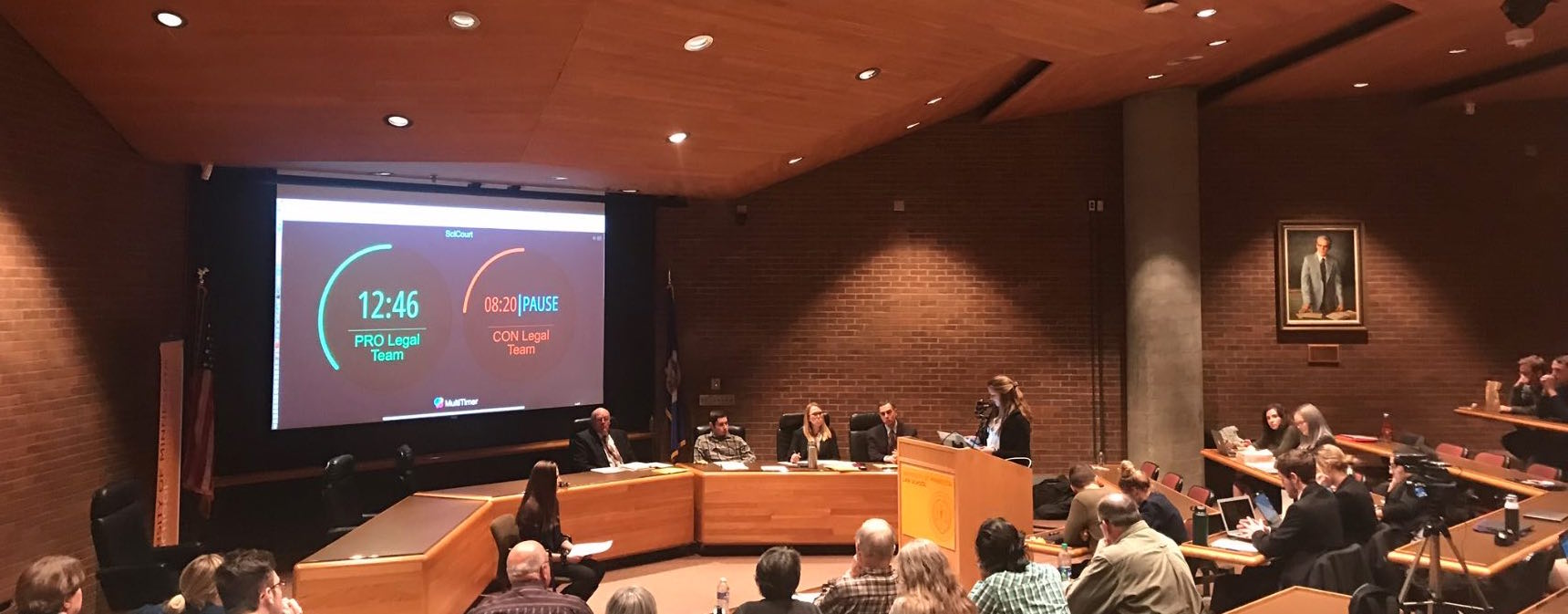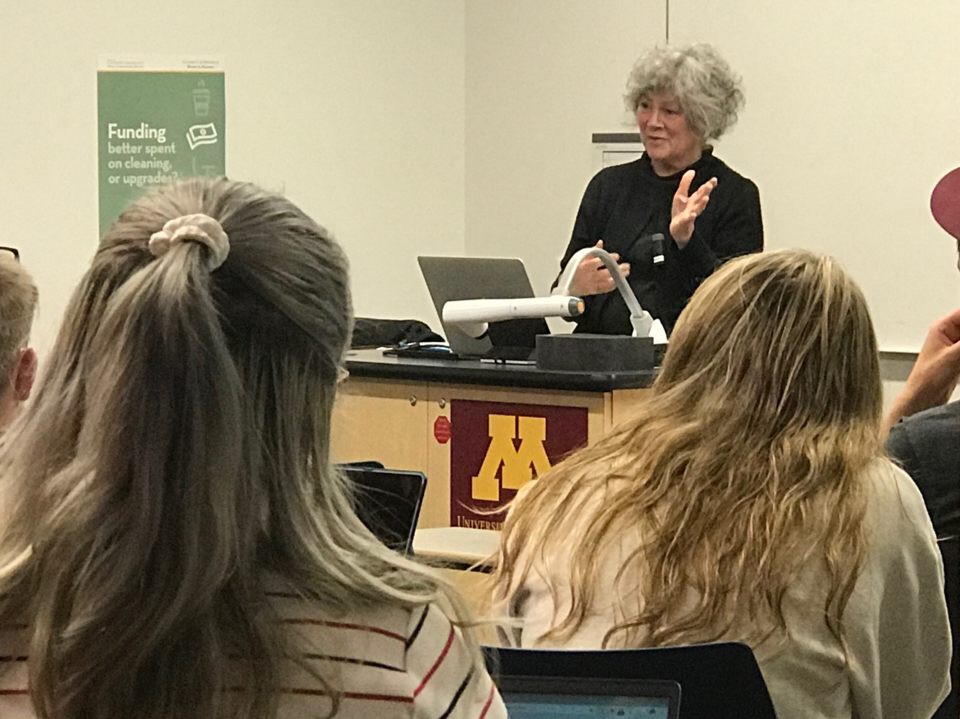
Welcome to Science Court!
Science Court is a project designed to combat polarization in American society and strengthen democracy. It is run as an interdisciplinary course in the University of Minnesota Honors Program involving students from across the university. The students select a controversial issue and spend an entire semester studying it in depth to determine the facts (based on sound scientific research) and then argue it in a mock trial in front of a jury of citizens with a mix of views and backgrounds. The public is engaged through compelling audio, video and online content generated by the students about the preparations, trial and verdict. The trial is free and open to the public.



The 2022 Science Court case is
Grading practices at the University of Minnesota can lead to bias, stress, and disincentivize learning, new innovative student assessment methods should be adopted
This year's Science Court is in partnership with the University of Minnesota (UMN) Student Senate. This topic is inspired by a Student Senate resolution, approved on December 3, 2020, requesting an extension of the UMN policy allowing students to opt for S/N grading (Satisfactory/Not satisfactory) in any course due to the COVID-19 pandemic. The Science Court case generalizes this to a full reevaluation of how students are assessed at UMN. This is timely considering increasing concerns regarding student mental health, the increased emphasis on student diversity and equity, changes in how students learn due to the technological environment, the increase in scholastic dishonesty facilitated by the internet and social media, and the rise of remote learning.
Science Court will consider student assessment holistically exploring what is known from scientific research in domains of knowledge informing this topic and propose two main strategies, Refine versus Reform, for the Student Senate to consider.
- The "Reform" (pro) approach proposes to replace the current UMN system with alternative methods for grading and student assessment proposed in the literature and tested at other institutions.
- The “Refine” (con) approach will argue to largely retain the current UMN grading system with modifications aimed at addressing its limitations based on research findings.
Stay tuned or follow us on twitter or join the Science Court mailing list to be kept informed.
LATEST BLOG POSTS
The Evidence: What’s In and What’s Out
We’re moving into the next phase of Science Court, as it’s time for the pre-trial evidence review. That means today is the day the judge will decide which science-based evidence will be allowed in the trial.
Listen to Episode 5 of our Podcast for an overview of the pretrial hearing by Luke Diamond:
Or watch this video by Porter Larkin to see what went down:
How to Make Your SciCourt Case Clear
Watch the video below, by Porter Larkin, to see a recap of all our guest speakers! Continue reading to hear from our latest guest speaker U.S. Attorney Tim Rank!
“In any given case you are going to have things that are easy to talk about and things that are hard to explain.” – U.S. Attorney Tim Rank
JURY SELECTION, FROM A-Z

“SciCourt is a good idea because people need to practice and develop a norm of sitting down with a heavy-duty controversy, looking at the evidence and putting their brains together to figure out how to make the best decision.” -Susan Macphearson, Litigation Consultant.
Finding the right jury for any case can be a daunting task, and SciCourt students will be soon be looking for a jury to tackle our case. That’s why Susan Macpherson, a litigation consultant, came to give us tips and advice about how to select a heterogenous jury. She revealed the difference between verdict-driven and evidence-driven jurors: